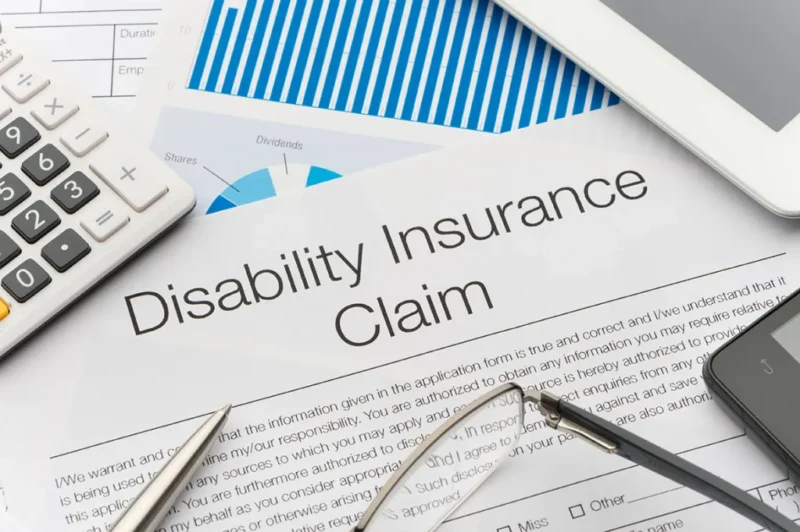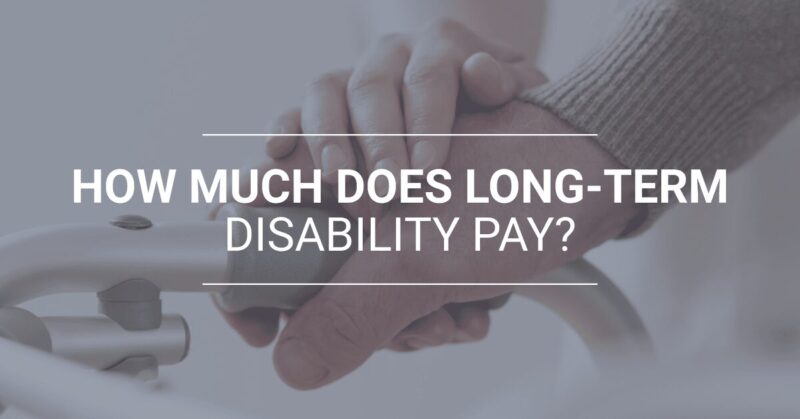Maximizing compensation in a long-term disability claim requires a strategic approach and an understanding of the processes involved. Here’s a comprehensive guide to help you navigate this complex terrain.
Understanding Your Disability Policy

It’s crucial to thoroughly understand your long-term disability (LTD) policy. Different policies have varied definitions of disability, coverage extents, and exclusion clauses. Start by reviewing your policy document.
Pay close attention to the definition of disability, as some policies consider you disabled if you can’t perform your specific job, while others may refer to any occupation you’re qualified for. Understanding these nuances is key to forming a strong claim.
Gathering Comprehensive Medical Evidence
Medical evidence forms the backbone of your LTD claim. To maximize your compensation, you must provide comprehensive medical documentation that supports your disability claim.
This includes detailed medical records, doctor’s notes, diagnostic test results, and a clear statement from your physician about how your condition affects your ability to work.
Regular visits to your healthcare provider and following their prescribed treatment plans are also vital. Document any changes in your condition and ensure your medical records are up to date.
Click here to learn more about the importance of comprehensive medical evidence in your long-term disability claim.
Maintaining Consistent Communication
Effective communication with your insurance company is essential. Respond promptly to requests for information and keep a record of all communications, including emails, letters, and phone calls.
If there are any changes in your medical condition, inform your insurer immediately. Consistent communication demonstrates your commitment to the process and helps avoid misunderstandings.
Consulting with Legal Professionals
Consulting with an attorney experienced in LTD claims can significantly influence the outcome of your case. A lawyer can help you understand the complexities of your policy, gather necessary documentation, and communicate effectively with your insurance company.
Preparing for Independent Medical Examinations

Insurance companies often require claimants to undergo an independent medical examination (IME) by a doctor of their choosing. While this is a standard part of the process, it’s crucial to approach IMEs with caution.
Be honest about your condition, but also be aware that the IME doctor’s report can significantly impact your claim. It’s often advisable to discuss the IME with your attorney beforehand.
Avoiding Common Pitfalls
Many claimants unknowingly make mistakes that can jeopardize their claim. Common pitfalls include not adhering to treatment plans, poor documentation, and social media activity that contradicts the claim.
It’s crucial to adhere strictly to your treatment plan and avoid any social media posts that could be misinterpreted as evidence against your disability claim.
Navigating the Appeal Process
If it is denied, it’s important to understand the appeal process. The first step is to review the denial letter carefully to understand the reasons for rejection. Then, gather additional evidence, such as more detailed medical records or letters from your treating physicians, to address the specific issues raised.
An attorney can be particularly helpful during the appeal process, offering advice on the best strategy and ensuring all deadlines are met. Remember, the appeal process is time-sensitive, so prompt action is essential.
Staying Organized and Keeping Records
Organization is key in a long-term disability claim. Keep a detailed file of all documents related to your claim, including medical records, correspondence with the insurance company, and any legal paperwork.
This organization will ensure that you have all necessary information at your fingertips, especially if your claim is questioned or denied.
Understanding Tax Implications

It’s important to be aware of the potential tax implications of your disability benefits. Whether or not your LTD benefits are taxable depends on how the premiums were paid. If you paid the premiums with after-tax dollars, your benefits would typically be tax-free.
However, if your employer paid the premiums or they were paid with pre-tax dollars, the benefits are usually taxable. Consulting with a tax professional can provide clarity on how your benefits will impact your overall tax situation.
Prioritizing Your Health
While navigating a long-term disability claim, it’s essential to prioritize your health. Managing a disability can be stressful, and the added pressure of a claim can exacerbate health issues.
Engage in activities that promote wellness and follow your healthcare provider’s advice. Taking care of your health not only supports your claim but also contributes to your overall well-being.
Being Aware of Surveillance
Insurance companies sometimes conduct surveillance to verify the legitimacy of disability claims. Be aware that you might be observed or recorded. Ensuring that your activities are consistent with the limitations outlined in your medical documentation is important. Any discrepancy between your claim and your actions can be used to challenge your claim.
Seeking Support Systems
Dealing with a long-term disability claim can be emotionally taxing. It’s beneficial to have a support system in place. This can include family, friends, healthcare providers, or support groups.
These networks provide emotional support, practical advice, and can help you navigate the complexities of the claim process.
Enhancing Your Claim with Expert Testimonies

Incorporating expert testimonies can greatly strengthen your long-term disability claim. These experts, typically medical professionals or vocational specialists, can provide detailed insights into how your disability affects your ability to work.
Their objective assessments can add significant weight to your claim, especially when countering challenges from the insurance company’s own experts.
Understanding the Role of Policy Limitations and Exclusions
Every disability policy has its limitations and exclusions. It’s vital to be aware of these as they directly impact your claim. For instance, some policies have specific clauses regarding mental health conditions or self-reported symptoms.
Understanding these nuances ensures you can navigate around potential roadblocks or strategize effectively if your condition falls within these challenging areas.
Staying Informed About Policy Changes
Insurance policies can change over time. It’s crucial to stay informed about any updates or amendments to your policy. These changes can affect your coverage, the definition of disability, or the benefits you’re entitled to.
Keeping abreast of these changes allows you to adjust your strategy accordingly and ensures you are not caught off guard.
Summary

Maximizing compensation in a long-term disability claim is a multifaceted process that involves thorough preparation, continuous documentation, and an understanding of your policy and legal rights.
It’s about being proactive in managing your claim, staying informed, and seeking professional guidance when necessary. Remember, while the process can be challenging, being diligent and informed significantly increases your chances of a favorable outcome.
Your focus should always be on what’s best for your health and financial stability, ensuring you’re equipped to handle the complexities of a long-term disability claim.













